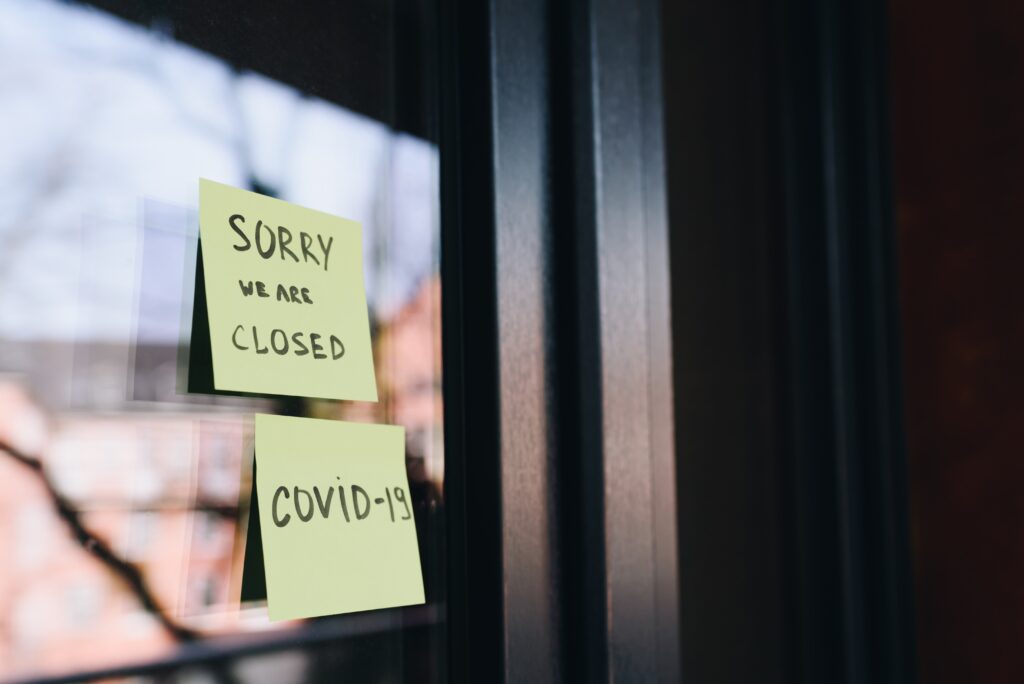As Mental Health Day 2023 approaches, I can’t help but reflect on my own journey – a journey marked by battles with depression and anxiety, and a journey deeply intertwined with the lives of those who have grappled with PTSD, eating disorders, bipolar disorder, and depression. These experiences have illuminated the importance of understanding the complexities of mental health, and I’m here to share what I’ve learned, with the hope of making a positive impact on your journey too.
There will be Resources throughout that have personally helped me as well as ones that I see could help guide others.
Mental Health Day isn’t just a date on the calendar for me; it’s a reminder of the resilience of the human spirit. It’s a day to acknowledge that mental health issues don’t discriminate; they affect people from all walks of life. It’s a day to shed light on the silent struggles that often go unnoticed, to break down the barriers of stigma, and to offer a helping hand to those who need it.
In this blog post, we’ll explore the mental health crisis through a deeply personal lens. We’ll share insights gained from battling these demons, and provide a glimpse into the complex world of the most commonly diagnosed mental illnesses, through the eyes of those I’ve known and loved. Together, we’ll navigate the winding paths of mental health, using the knowledge gained from personal battles and the stories of resilience I’ve witnessed.
Throughout these pages, you’ll find not just information but empathy. Not just awareness but tools and thought processes that have helped me and I hope can help you or someone you care about on their journey to healing and hope. This Mental Health Day, let us stand together, united by our shared experiences and our shared commitment to a world where mental health is understood, valued, and cared for with compassion.
in recent years, the world has witnessed a profound and alarming rise in the prevalence of mental health issues. Understanding the scope of this crisis is essential, as it lays the foundation for addressing and supporting those who are affected.

In recent years, the world has witnessed a profound and alarming rise in the prevalence of mental health issues. Understanding the scope of this crisis is essential, as it lays the foundation for addressing and supporting those who are affected.
The Global Impact
Mental health issues are not confined to specific regions or demographics; they are a global concern. According to the World Health Organization (WHO), depression alone takes 1 million people away from us every year. That doesn’t even mention the millions (Around 280 million, nearly 20% of adults in the US and 7% of children) who, every day, struggle to get to where they need to be, to take care of themselves or others, and are often in the close clasps of death. This is only depression. This doesn’t mention the other 970 million people in a 2019 study who suffer from the vast sea of other mental illnesses. This was in 2019 and as we all know, a lot happened after 2019. A Recent Harvard medical study suggested that 1 in 2 (50%) will develop a mental health disorder in their lifetime! It doesn’t have to be a scary thought if our actions align with our compassion to help others. It is shown to become a crisis if not already along those lines.

Pandemics Influence
The COVID-19 pandemic, which began in late 2019, exacerbated the mental health crisis. Isolation, fear of illness, economic hardship, and the loss of loved ones have taken a toll on mental well-being. The pandemic highlighted the need for accessible mental health support and resources on a global scale.

The Stigma Surrounding Mental Illness.
One of the significant challenges in addressing the mental health crisis is the persistence of stigma. Many individuals hesitate to seek help due to fear of judgment or discrimination. Reducing this stigma is a critical step toward encouraging individuals to seek the support they need. Some places, and communities, struggle more than others do.
The Economic Impact
Beyond the personal toll, mental health issues have significant economic implications. Lost productivity, absenteeism, and increased healthcare costs associated with untreated mental illnesses place a burden on individuals, families, and societies as a whole. Nations suffer from homelessness when mental illness isn’t addressed. Cities across the United States are facing a homelessness crisis right now. While this is due to unaffordable housing and general inflation, The matter of fact is that mental health adds to the issue.

The Importance of Early Intervention
The importance of early intervention in mental health cannot be overstated. Addressing mental health challenges in their early stages can prevent them from becoming more severe conditions and lead to more successful treatment outcomes. It also helps individuals develop coping skills and resilience, reducing the overall societal burden of untreated mental illnesses. Early intervention is a crucial step towards a world where mental well-being is prioritized, stigma is reduced, and individuals receive timely support.
The Call for Action
As we delve deeper into the mental health crisis, it becomes clear that it is a multifaceted challenge. It affects us personally, socially, and economically. It demands our attention, empathy, and concerted efforts to break down barriers, raise awareness, and provide effective support.
In the sections to follow, we will explore coping strategies for mental health, holistic approaches to well-being, the significance of reducing stigma, and a comprehensive list of resources and support. Together, we will navigate the complex landscape of mental health, armed with knowledge and empathy, and strive for a world where mental well-being is a fundamental priority

Mindful Meditation
Practicing mindfulness meditation can help reduce stress and anxiety, improve focus, and promote emotional well-being. There is lots of research on the topic but one website I find helpful and pleasant to browse is Mindful.org. They have many topics on mental well-being as well as practices to incorporate into your life.
Meditation doesn’t have to be complicated. Just take even 3 minutes to breathe and breathe deeply. Each deep breath makes an impact.
Regular Exercise
Engaging in regular physical activity releases endorphins, which can boost mood and reduce symptoms of depression and anxiety. Getting physical when you’re in a slump isn’t easier said than done. Most of the time in depressive episodes it turns into a dragon you have to fight with a wooden sword. However, if you muster up enough courage to even just walk outside for 5 minutes a day. It will have an impact on your mental health. The benefits of exercise outweigh anything holding you back

Journaling
Eating Healthy
You are what you eat. We’ve all heard it before but a change in diet will make you feel better than where you are right now. Your body and brain need the proper nutrients to function at their best. With ease of access to processed and unhealthy fast food, now is more important than ever to try to eat your vegetables. Dietary habits rarely begin with a sudden change so just try to eat some spinach once a week. Fruits are good too just get a few more of those in.
Eating the rainbow is the easiest way to get started.

Positive Affirmations
I think I can! I think I can! This is a phrase that many children grew up with. The little engine that could. If the little engine thought there wasn’t any chance. “I can’t do this. I can’t do this. Well, the engine probably couldn’t. While this is just a cartoon, positive affirmations have a true impact on mental resilience and positivity. incorporating positive affirmations into your daily routine can foster a more optimistic and resilient mindset.
Social Connections
As someone who has often retracted from others because of a decline in my mental health, I know that this isn’t the answer. Being around someone you care about, even if there’s no conversation can make a huge difference. Go out to a coffee house or a tea shop. Some place you enjoy and can also have a chat with a person with a good vibe. Maintaining strong social connections can provide emotional support, reduce feelings of loneliness, and boost mental health.

Holistic Therapies and Medicine
Holistic medicine has been seen as unserious compared to Western medicine. I don’t quite understand why it’s been seen as invalid when it’s worked for billions of people in other countries but I think it’s important to consider exploring holistic therapies such as acupuncture, yoga, or aromatherapy to promote mental and emotional balance. Holistic treatments as well as holistic medicine have personally changed my life. Your body has the tools it needs to get better just as long as you play a supportive role by relieving tensions and providing it with proper nutrition.
Spending Time in Nature
Another thing that people may not believe to be true is that spending time in nature can boost your mood and help you through hard times. Just in recent years (in terms of human evolution being 300,000 years) Humans have been confined to small spaces and the majority of the time we spend is inside a building. Most of our time is in our home or at our job. This has proven to be a contributor to why our mental health suffers. Spending time in nature can reduce stress, improve mood, and enhance overall well-being studies show.

Sleep Hygeine
Our most recharging and nourishing moments for our body are when we sleep. This is when our brain tucks away information, when our body regenerates and grows, and is a time to reset after we’ve had a difficult day. Everyone knows they get cranky when they have little to no sleep. We choose to deny that sleep has a dramatic effect on the success of the next day. This is a level of self-care that is an absolute must. Practicing good sleep hygiene habits can improve sleep quality, which is essential for mental wellness.
Summary
In this post, we’ve explored an array of strategies and resources to empower your journey toward improved mental health. As Mental Health Day 2023 approaches and we look to the future, remember that your mental well-being is an ongoing pursuit worthy of your dedication.
We’ve uncovered practices like mindfulness meditation, exercise, journaling, and a balanced diet, each serving as building blocks for resilience. Embracing positive affirmations, nurturing social connections, and considering holistic approaches have the power to transform your mindset and nurture your overall well-being.
Above all, know that you’re not alone in this endeavor. Seek support and knowledge from trusted resources. Let’s champion mental health, reduce stigma, and strive for a world where everyone’s well-being is cherished. Armed with these tools, may you continue to cultivate your mental health, find strength in resilience, and thrive long past October 10th, 2023, and in all the days ahead.






One response to “Beyond October 10th: Sustaining Mental Wellness in 2023”
Thank you for reading this post. I strive to produce content that I believe would have helped me in times when I felt lost, broken, or confused. This resource is a compilation of the tools I have used to follow my life passions. If this has helped you at all, please share it with someone you think it could help!